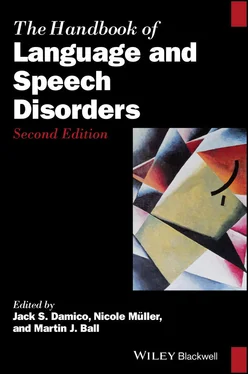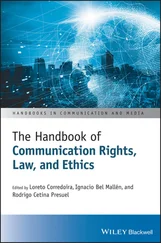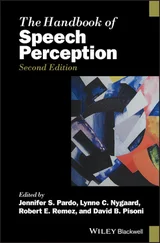Hermann Ackermannhas a Master’s degree in philosophy and psychology, and a medical degree (speciality: clinical neurology and neurophysiology). Besides his clinical training in the field of neurology, he did postgraduate work, especially on Parkinsonian and cerebellar dysarthria in the laboratory of Professor Wolfram Ziegler, Departments of Neuropsychology at the Max Planck Institute for Psychiatry, and the City Hospital Bogenhausen, Munich. Since 1996, he has been Professor of Neurological Rehabilitation at the Medical School, University of Tübingen, and head of the Research Group Neurophonetics at the HERTIE‐Institute for Clinical Neurosciences, University of Tübingen. He is also head of the Department of Neurological Rehabilitation at the Rehabilitation Center Hohenurach, Bad Urach, associated with the University of Tübingen. His research focuses on the brain correlates of speech production and speech perception, using functional magnetic resonance imaging and magnetoencephalography.
Elena Babatsouliis an Assistant Professor in the Department of Communicative Disorders at the University of Louisiana at Lafayette, the founding co‐editor of the Journal of Monolingual and Bilingual Speech , President of the Association of Monolingual and Bilingual Speech, and founder of the International Symposium on Monolingual and Bilingual Speech. She received a BA in English from Royal Holloway, University of London, an MA in Languages and Business from London South Bank University, and a PhD in Linguistics from the University of Crete. Elena’s research interests are on child/adult bilingual and monolingual (cross‐linguistically) phonological acquisition and assessment, second‐language acquisition, speech sound disorders, culturally responsive practices in speech and language sciences, phonetics/phonology, morphology, psycholinguistics, clinical linguistics, and measures/quantitative methods. She has thirty publications, five edited books, three conference proceedings, and two edited special issues in journals.
Martin J. Ballis Honorary Professor of Linguistics at Bangor University, Wales, having previously held positions in Wales, Ireland, the US, and Sweden. He holds a PhD from the University of Wales, and a DLitt from Bangor University. He co‐edits the journals Clinical Linguistics and Phonetics and Journal of Multilingual and Bilingual Speech , as well as book series for Multilingual Matters and Equinox Publishers. He has published widely in communication disorders, phonetics, sociolinguistics, bilingualism, and Welsh linguistics. Recently he completed co‐editing the four‐volume Encyclopedia of Human Communication Sciences and Disorders for Sage publishers. He is an honorary fellow of the Royal College of Speech and Language Therapists, and a fellow of the Learned Society of Wales. He currently lives in Cork, Ireland.
Margaret Lehman Blake, PhD, CCC‐SLP, is a Professor in the Department of Communication Sciences and Disorders at the University of Houston. She earned her PhD from the University of Pittsburgh and completed a postdoctoral fellowship at the Mayo Clinic. Her research focuses on cognitive‐communication disorders associated with right hemisphere brain damage (RHD), to understand the underlying deficits and to develop treatments. She has authored many articles, chapters, and the book The Right Hemisphere and Disorders of Cognition and Communication . She has presented nationally and internationally on evidence‐based practice for disorders associated with RHD. She is a recipient of the University of Houston Teaching Excellence Award and has served as the President of the Academy of Neurologic Communication Disorders & Sciences (ANCDS).
Stephanie A. Borrie, PhD, is an Associate Professor of Communication Disorders at Utah State University. She is also the director of the Human Interaction Lab, which takes a dyadic approach to the study of speech communication. Her research investigates how listeners understand and adapt to speakers with dysarthria, laying the groundwork for listener‐targeted interventions to improve intelligibility of dysarthric speech. She also investigates the coordinative nature of spoken dialog, extending the study of speech impairment to the realm of conversation. Her research is currently funded by the National Institutes of Health, National Institute on Deafness and other Communication Disorders (USA). She serves as an editor for the Journal of Speech, Language, Hearing Research , a journal of the American Speech, Language, and Hearing Association.
Christine Brennanis an Assistant Professor in the Department of Speech, Language, and Hearing Sciences at the University of Colorado, Boulder, where she is also a member of the Institute of Cognitive Science and Intermountain Neuroimaging Consortium (INC). She holds a PhD and a clinical MA from Northwestern University, Illinois. She is a certified speech‐language pathologist and a cognitive neuroscientist. As the director of the ANCHAR Lab (Applied Neuroscience for Communication, Hearing, And Reading), her current research examines the relationship between speech sound processing and reading skill in children and adults with and without reading disabilities. She also engages in research examining clinical outcomes for children and adults with various types of learning disabilities, including developmental and intellectual disabilities. Presently, she is the only speech‐language pathologist serving on the professional advisory board for the PRISMS (Parents and Researchers Interested in Smith‐Magenis Syndrome) organization. She lives in Louisville, Colorado.
Tim Bressmannis an Associate Professor in the Department of Speech‐Language Pathology at the University of Toronto. He studied at the University of Freiburg and Trinity College Dublin before obtaining an MA in Clinical Linguistics from the University of Bielefeld. He then worked as a clinician in different hospitals while also studying for his PhD in Phonetics at the University of Munich. Tim Bressmann’s research focuses on speech production in individuals with craniofacial syndromes and head and neck cancer. He is a Section Editor of the Cleft Palate‐Craniofacial Journal and an Associate Editor of Clinical Linguistics and Phonetics .
Bonnie Brintonis professor emeritus at Brigham Young University (BYU), Provo, Utah. Her work focuses on assessment and intervention with children who experience difficulty with social communication. Dr Brinton has been a professor at the University of Nevada, a research scientist at the Schiefelbusch Institute for Lifespan Studies, University of Kansas, and Dean of Graduate Studies at BYU. She is a fellow of the American Speech‐Language‐Hearing Association and received Honors of the Association in 2019.
Chris Codeis Professorial Research Fellow in the Department of Psychology, Washington Singer Labs, University of Exeter, England. He is the Foundation Professor of Communication Sciences and Disorders at the University of Sydney and past Research Manager for Speakability , and Patron of AphasiaNow . He is also co‐founding Editor of the journal Aphasiology . His research interests include the cognitive neuroscience of language and speech, psychosocial consequences of aphasia, recovery and treatment of aphasia, the evolution of speech and language, number processing, and apraxia.
Louise Cummingsis Professor in the Department of English and Associate Dean in the Faculty of Humanities at The Hong Kong Polytechnic University. She teaches and conducts research in pragmatics, clinical linguistics, and health reasoning. She is the author and editor of 18 books, including most recently Fallacies in Medicine and Health (Palgrave Macmillan, 2020), Language in Dementia (Cambridge University Press, 2020) and Pragmatic Language Disorders (Springer, 2021). She is editor of the book series Routledge Research in Speech‐Language Pathology . Louise Cummings has been a Visiting Fellow in the Department of Philosophy at Harvard University, and the Centre for Research in the Arts, Social Sciences and Humanities (CRASSH) at Cambridge University. She is a member of the Royal College of Speech and Language Therapists, the Health & Care Professions Council in the UK, and the Hong Kong Academy of Humanities.
Читать дальше












